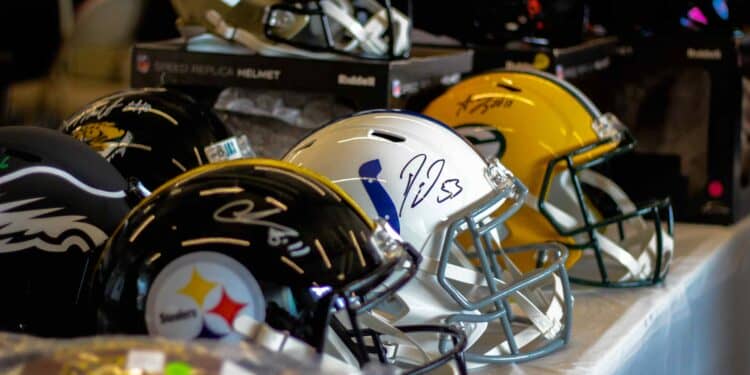The NFL, a cornerstone of American sports culture, offers more than just the thrill of the game; it invites fans into the realm of strategic play through NFL Fantasy Leagues and NFL Manager Games.
While both engage the football enthusiast with a mix of strategy, knowledge, and a bit of luck, they cater to different aspects of fan engagement and require distinct approaches. This article delves into the nuances that set these two popular platforms apart, providing a comprehensive understanding for both seasoned players and curious newcomers.
NFL Fantasy Leagues: The Art of Player Selection
NFL Fantasy Leagues, such as those offered on platforms like FanDuel, primarily focus on selecting and managing individual players. Fans, acting as team owners, draft real-life NFL players to their fantasy teams.
The core of this experience lies in the strategic selection of players based on their real-world performances, as well as analyzing FanDuel DFS odds to make informed choices. Points are accumulated based on how these players perform in actual NFL games, with aspects like touchdowns, yards gained, and receptions being critical to success.
The appeal of fantasy leagues is twofold: it requires a deep understanding of player performance and an ability to predict future outcomes. This anticipation of player success, often based on analysis of stats, injuries, and matchups, brings a personal touch to the fantasy league experience. It’s not just about knowing the game; it’s about understanding the players.
NFL Manager Games: The Strategy of Team Management
In contrast, NFL Manager Games offers a more holistic approach to team management. Here, players assume the role of a general manager or a coach, making decisions that affect the entire team. This includes managing rosters, dealing with contracts, and even controlling financial aspects like stadium upgrades and merchandising.
The strategic depth of manager games is found in long-term planning and resource management. Success is not solely determined by the players’ performance in real-life games but also by how well the individual manages the many aspects of a football franchise. This requires a broad understanding of football operations, from player development to financial acumen.
Key Differences
The primary difference between NFL Fantasy Leagues and NFL Manager Games lies in their scope and focus. Fantasy leagues are player-centric, revolving around the performance of individual athletes in real games. Manager Games, on the other hand, are organization-centric, focusing on the broader aspects of running a football team.
Another distinction is in the skill set required. Fantasy leagues demand skills in player analysis and prediction, requiring a keen eye for player stats and trends. Manager games, conversely, require a broader set of skills, encompassing strategic planning, financial management, and long-term decision-making.
Despite their differences, both platforms offer a shared thrill: the excitement of making decisions that impact the outcome. Whether it’s choosing the right player for your fantasy lineup or making a strategic draft pick in a manager game, the sense of ownership and involvement is a significant draw for fans. This participatory aspect enhances the experience of being an NFL fan, providing an interactive way to engage with the sport.
Conclusion
NFL Fantasy Leagues and NFL Manager Games, while catering to the same audience of NFL enthusiasts, offer distinctly different experiences. Fantasy leagues appeal to those who enjoy the strategy behind player selection and performance prediction, while manager games attract those who relish the comprehensive management of a football franchise.
Both, however, provide an immersive and engaging way for fans to connect with the sport they love, adding depth and personal investment to the spectator experience of NFL football.







